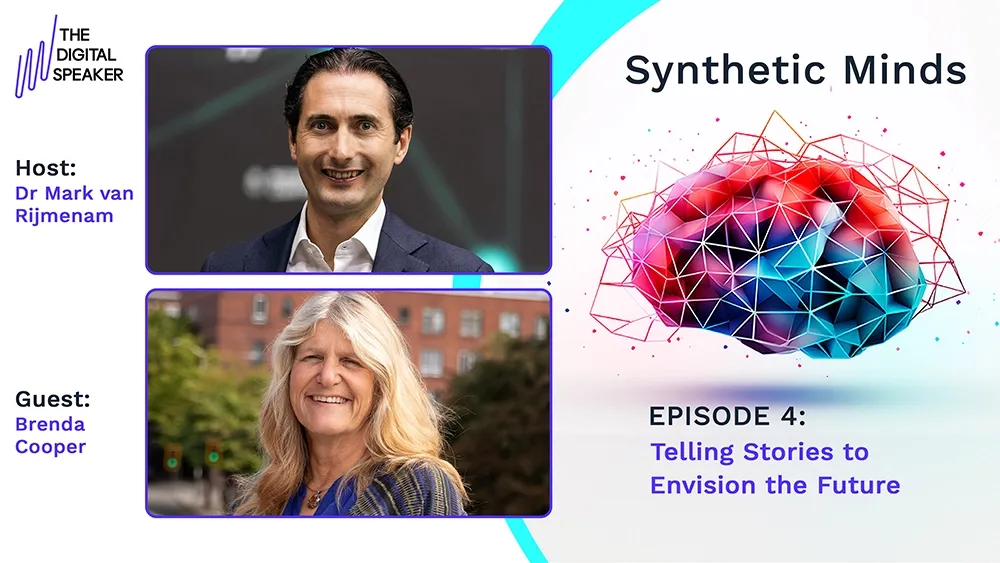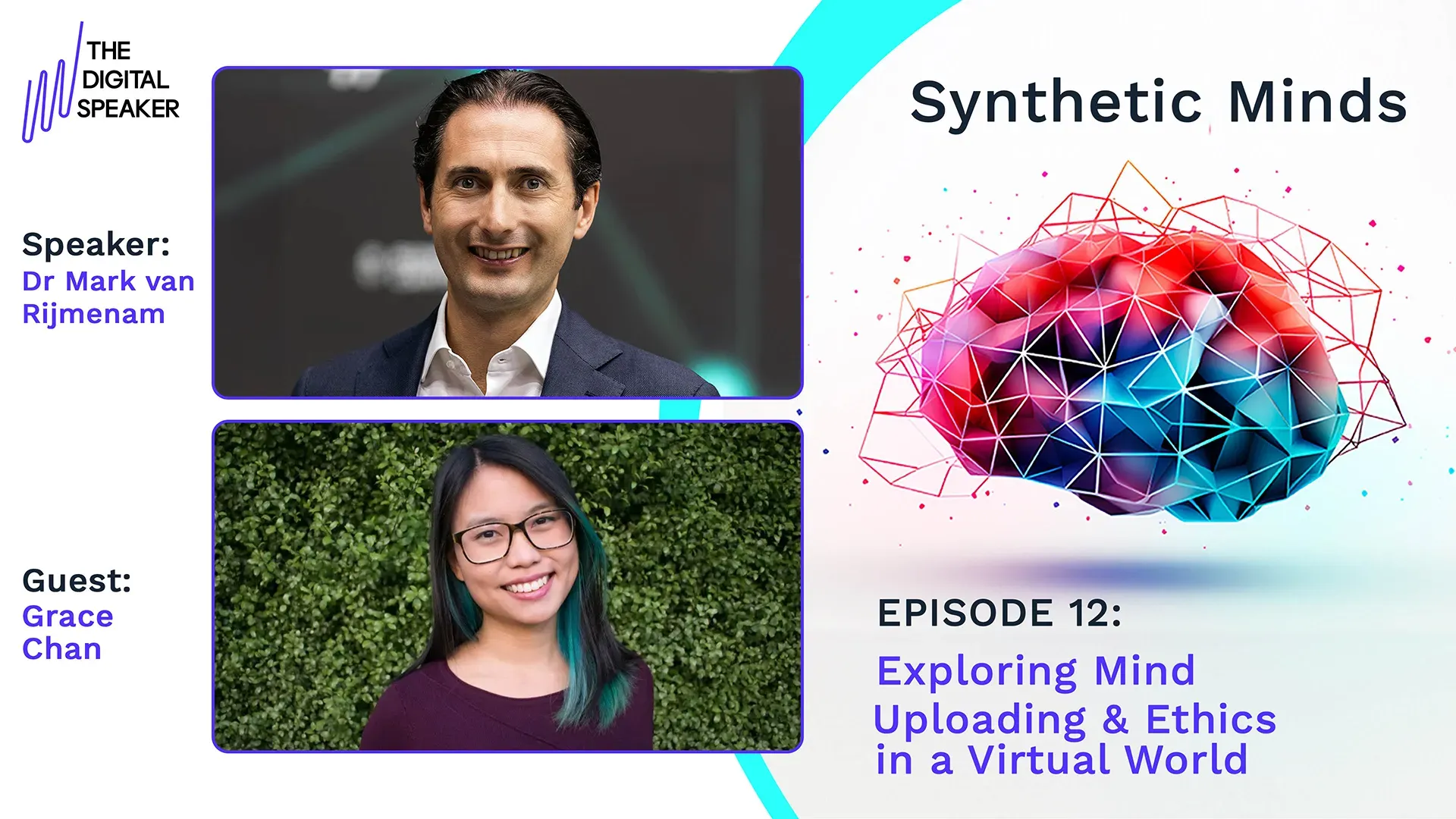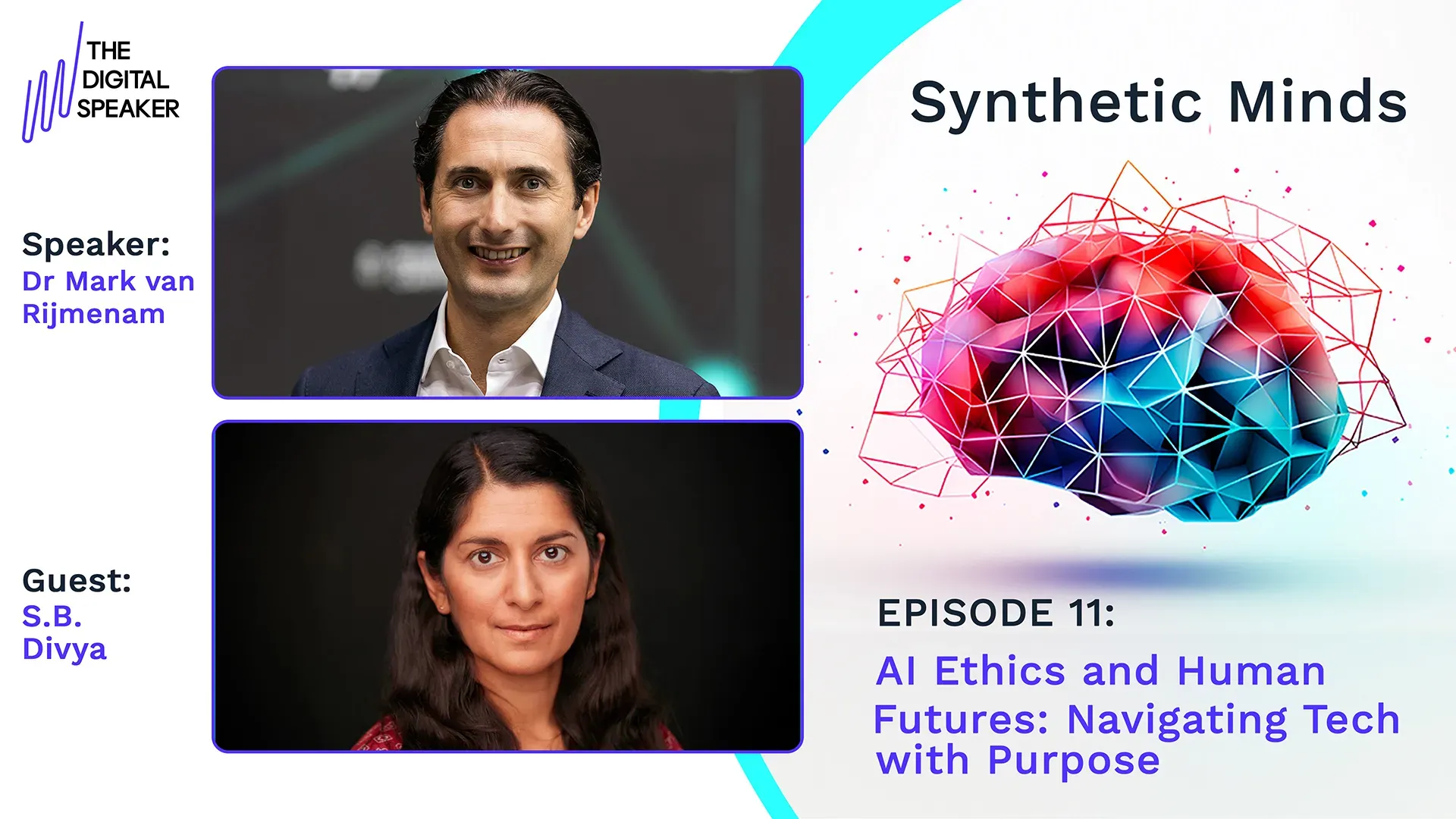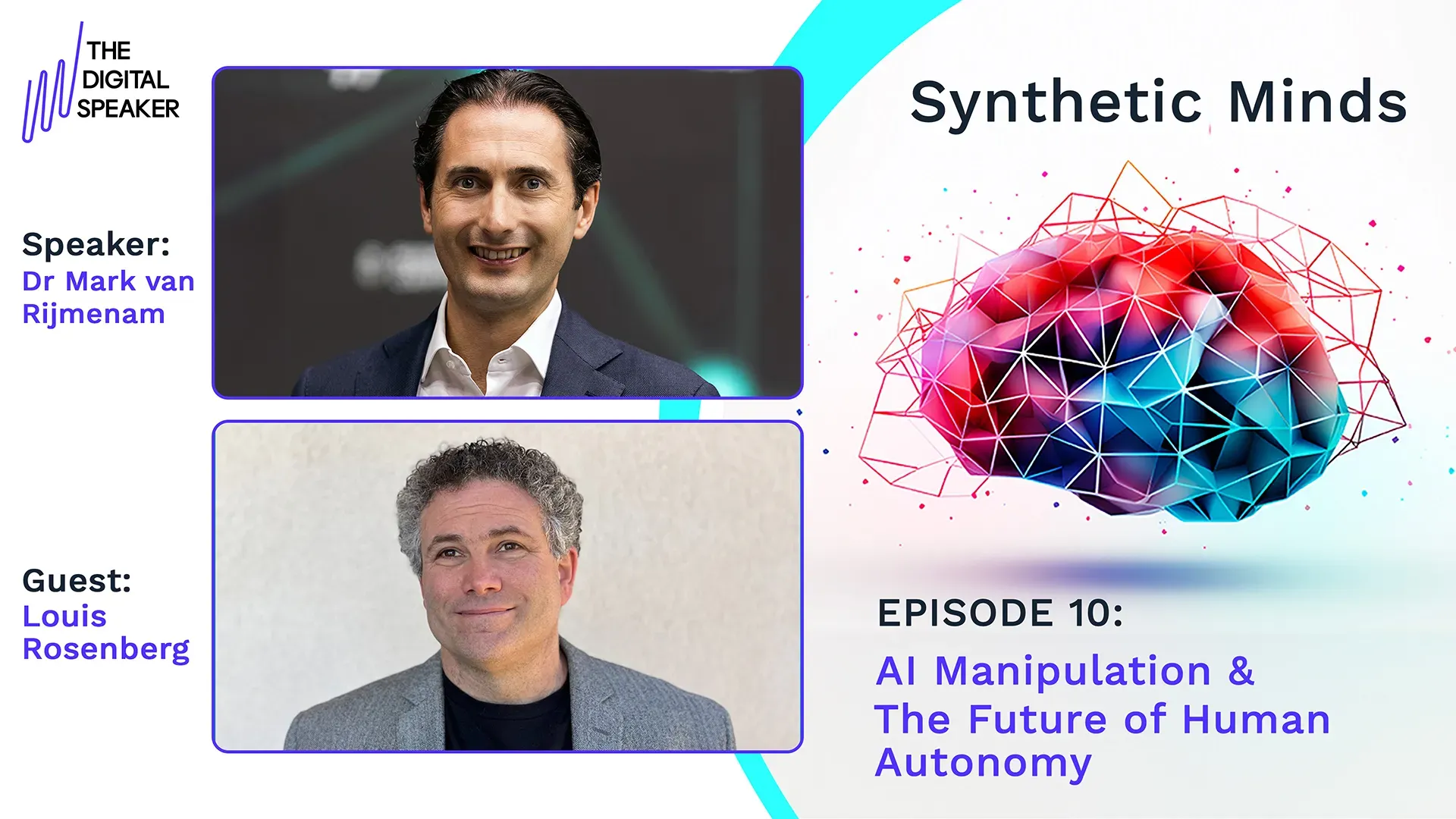Telling Stories to Envision the Future with Brenda Cooper - Synthetic Minds Podcast EP04

Welcome to another thought-provoking episode of the Synthetic Minds podcast, where we delve into the fascinating interplay between science fiction and science reality. The mission is to illuminate the pathways from imaginative narratives to practical applications, helping organizations harness the power of futures thinking to navigate the rapidly evolving digital landscape. For this episode, I had the privilege of speaking with Brenda Cooper, a distinguished science fiction author and technologist whose insights into future technologies and societal shifts offer invaluable lessons for today's leaders.
Brenda brings a unique blend of real-world technology experience and speculative storytelling to explore pressing issues and future possibilities. Her novels, particularly "Edge of Dark" and "Wilders," reflect her deep engagement with themes like environmental sustainability, the evolution of AI and robotics, and societal transformations.
Brenda's approach integrates her extensive experience in technology with her futuristic visions, offering a profound understanding of the current landscape and potential futures. This dual expertise offers an insightful perspective on the complexities and responsibilities of advancing technology. She emphasizes the importance of storytelling in science fiction as a tool to explore and question the trajectory of human development and technological integration. By weaving complex narratives that delve into futuristic technologies, Brenda encourages listeners to consider the broader implications of these advancements on society and the environment.
Embracing Technological Convergence
We discussed the nuanced interplay between rapid technological advancements and societal adaptation. Her work in a construction company using basic AI and robotics exemplifies the current practical applications of these technologies. However, Brenda emphasizes the potential speed of their impact over the next two decades, drawing on her extensive background to project these technologies' evolutionary trajectories. This perspective is crucial for business leaders to understand as they plan for future integration of emerging technologies in their operations.
Her narrative explores the critical juncture where society meets technology. In "Edge of Dark," Brenda paints a future where advanced AIs, once exiled, evolve distinctly from their human creators, posing philosophical and ethical dilemmas about control and coexistence. This scenario urges business leaders to consider the unintended consequences of technologies and to prepare for scenarios where these technologies evolve beyond their initial intent.
It serves as a reminder that technological developments can have far-reaching effects that transcend their original purposes, challenging us to think critically about the direction and nature of our technological progress.
Strategic Adaptation and Ethical Considerations
Brenda stresses the importance of strategic foresight in business leadership, advocating for a proactive rather than reactive approach to technological integration. We discussed the necessity of embracing technological innovations and effectively managing their adoption within organizational structures.
This includes fostering environments encouraging experimentation and embracing failures as learning opportunities, crucial for navigating the complexities of rapid technological change. Leaders are encouraged to cultivate a culture of innovation where new ideas are welcomed and rigorously tested, ensuring that advancements align with corporate goals and ethical standards.
Furthermore, we delved into ethical considerations in technology deployment. Brenda argues for embedding ethical frameworks in AI development, reflecting on the broader impacts these technologies may have on society. She highlights the need for a balanced approach that considers both technological benefits and ethical imperatives, urging organizations to adopt principles that ensure technologies are developed and used responsibly.
This part of the conversation emphasizes the significance of maintaining a human-centric approach in deploying AI and robotics, ensuring that these technologies enhance societal well-being without compromising moral values or human dignity.
Towards a Sustainable and Technologically Integrated Future
Brenda's insights extend into the potential for technologies to address critical global challenges, such as climate change. She advocates for using AI and other technologies to create sustainable solutions that benefit the planet and its inhabitants. This involves rethinking traditional business models and corporate strategies to align with sustainability goals and the broader welfare of society.
Businesses can play a crucial role in fostering a sustainable future by strategically employing technologies to improve efficiency and reduce environmental impact.
Brenda Cooper's perspective enriches our understanding of the intersection between technology and society. Her thought-provoking discussion serves as a call to action for business leaders and strategists to integrate futures thinking into their practices, ensuring that advancements in AI and robotics are harnessed for the greater good.
Her narratives not only entertain but also provide valuable insights into navigating the evolving landscape of technology, making her works an essential resource for anyone looking to understand the future impacts of technological developments.
Conclusion
Brenda's narratives, rich with advanced technologies and complex societal shifts, serve as a beacon for business leaders and policymakers. They offer a framework to anticipate challenges and opportunities, enabling us to craft a future that aligns with our highest human values.
Her stories are more than just speculative fiction; they are simulations of possible futures that challenge us to think deeply about our paths forward. Integrating such visionary insights can be pivotal as organizations strive to navigate an increasingly complex world. By embracing the lessons embedded in science fiction, leaders can enhance their strategic planning with creativity and foresight, ensuring resilience and adaptability in an ever-changing landscape.
Let's carry forward the insights from today's podcast, using them to inspire and inform our strategies, ensuring that as we advance technologically, we remain thoughtful, inclusive, and proactive in shaping a future that benefits all.
About Brenda Cooper
Brenda Cooper writes science fiction, fantasy, and the occasional poem. She also works in technology and writes and talks about the future. She has won multiple regional writing awards, and her stories have often appeared in Year's Best anthologies. Brenda lives and works in the Pacific Northwest with her wife and multiple border collies and can sometimes be found biking around Seattle.
Some of her books include:















